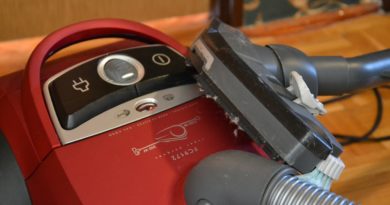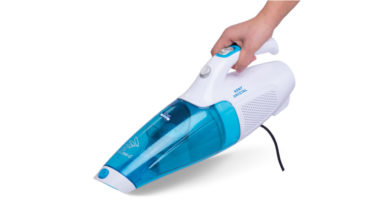Vacuum Configurations
Vacuum cleaners are devices that use an air pump to create a partial vacuum to suck up dirt and dust, normally from carpeted floors. Most homes that have carpet floors have a vacuum for cleaning. The dirt that is pulled up from the carpet is collected by a filtering system or even a cyclone for later disposal.
There are several types of configurations possible for vacuum cleaners.
Upright
Upright vacuums have the pump mounted directly above the suction intake, with the bag mounted directly on the handle, which will rise to waist height or so. The upright type designs normally employ mechanical beaters which often rotate brushes, to help disturb dust enough to be vacuumed up. These beaters are normally driven by a belt that is attached to the vacuum motor.
Canister
Also known as cylinder vacuums, the canister type designs have the motor and bag in a separate canister unit that connects to the vacuum head by a flexible hose. Even though upright units have been tested as being more effective, the lighter and more maneuverable heads of the canister models are quite popular. Some models have powerheads, which contain the same type of mechanical beaters found it upright units, although they are driven by a separate electric motor.
Wet vacs/dry vacs
These types a specialized form of the canister vacuum and they can be used to clean up wet or liquid spills as well. They will commonly accommodate both wet and dry soilage, with some being equipped with a switch or exhaust port that reverses the flow of air. This is a very useful function for everything from clearing clogged hoses to blowing dust into a corner for easy collecting.
Backpack vac
These types of vacuums are commonly used for commercial cleaning, as they allow you to move about quickly and efficiently in a large area. They are basically canister vacuum cleaners, except for the fact that straps are used to carry the canister on your back.
Built-in or central
These types of vacuum cleaners will move the suction motor and bag to a central location in the building and provide vacuum inlets at strategic places throughout the entire building. You only need to carry the hose and pickup head from room to room, while the hose is normally 25 foot long and allows a large range of movement without changing vacuum inlets.
The plastic piping will connect vacuum inlets to the central unit. The vacuum can either be unpowered or have beaters that are operated by an electric motor or an air-driven motor. The bag in the central vacuum system is normally so big that emptying it or changing needs to be done less as often, sometimes only once a year.



